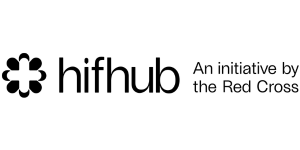AidEx and the Humanitarian Finance Forum (HFF) are partnering at AidEx Geneva to promote greater awareness and knowledge of innovative finance solutions in humanitarian contexts. This collaboration is supported by the HIFHUB (Humanitarian Innovative Finance Hub, an initiative under the Red Cross and Red Crescent Movement). Building on the success of previous events, this partnership also sets the stage for the Humanitarian Finance Summit in London in February 2026.
The humanitarian sector is under unprecedented and significant strain. Over 300 million people require humanitarian assistance globally, but funding continues to decline year on year—2025 marks a record low. The traditional funding is no longer sufficient to meet the growing demand. To address this systemic shortfall, AidEx Geneva 2025 will bring together donors, investors, humanitarian leaders, and local stakeholders to examine the evolving landscape of humanitarian financing needs, including:
- Policy Shifts: Addressing systemic challenges and opportunities in donor regulations
- Humanitarian Readiness: Assessing the capacity and readiness of humanitarian institutions to design and absorb innovative finance mechanisms
- Demand-side Needs: Incubating and scaling a pipeline of investment opportunities
The Innovative Finance Pavilion is a dedicated space for showcasing practical projects and approaches, such as blended finance instruments, insurance schemes for climate resilience, impact bonds, and outcome-based funding. Designed to foster real-time connections, the Pavilion contain stands that host presentations and demos of specific financial tools, and chats with investors and advisors.
By grouping specialists, we present an unparalleled opportunity to meet with a strong concentration of participants, including senior representatives from the public and private sector, from non-governmental organisations, development finance institutions, multilateral development banks, investors, fund managers, insurance providers, donors, government officials, and academics.
This event is ideal for those already working in Innovative Finance, as well as for those curious about how it could benefit and be implemented into their organisation. View last year's Event Summary for reflections on the 2024 event.
)



)
)
)
)
)
)
)
)
)
)
)
)
)
)
)